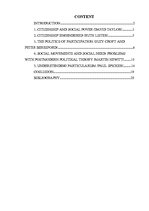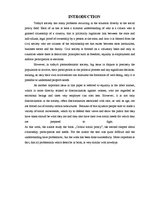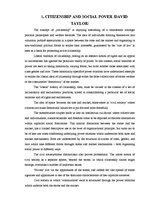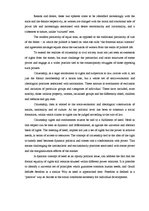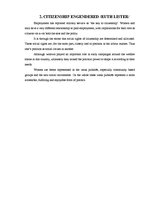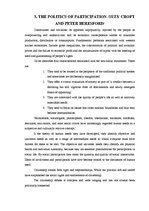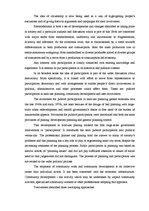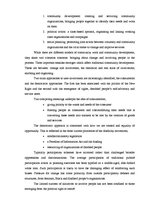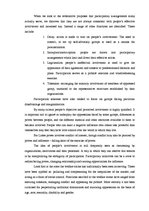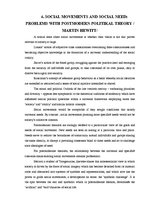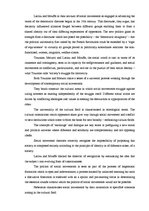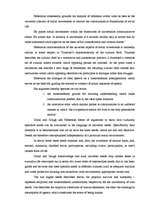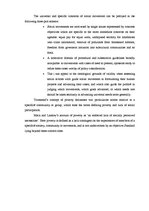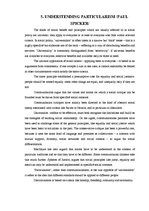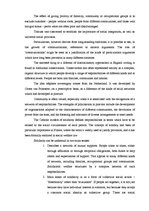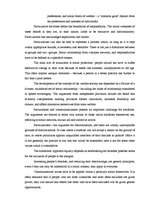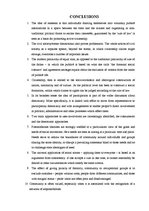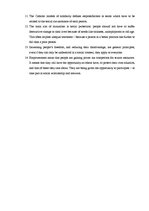-
Intergenerational Relations
| Nr. | Chapter | Page. |
| INTrodUCtIon | 2 | |
| 1. | Citizenship and social pover /David Taylor/ | 3 |
| 2. | Citizenship engendered /Ruth Lister/ | 5 |
| 3. | The politics of participation /Suzy Croft and Peter Beresford/ | 6 |
| 4. | Social movements and social need: problems with postmodern politikal theory /Martin Hewitt/ | 10 |
| 5. | Understending particularism /Paul Spicker/ | 14 |
| COSLusIOn | 18 | |
| BiBLiOGraPhy | 20 |
Today's society has many problems occurring in the situation directly to the social policy field. Each of us has at least a minimal understanding of who is a citizen who is granted citizenship of a country, that is politically legitimate link between the state and individuals, legal proof of ownership by a person at the state, and how it is formed from the civil society who are citizens of the relationship set that exists between state institutions, business sector and the family. Civil society is formed on a voluntary basis and only in countries where there is democratic principles such as freedom, equality in employment and anforce participation in elections.
However, in today's postmodernistic society, big issue in dispute is precisely the population to involve, their participation in the political process and any significant decision-making, as only their own involvement can stimulate the formation of well-being, only it is possible to understand people's needs.
As another important issue in this paper is referred to equality in the labor market, which is more directly related to discrimination against women, who are regarded as emotional beings and thets why employer can cost less. However, it is not only discrimination in the society, often discrimination associated with race, as well as age, ore are forced out of society certain subcultures. Because of this injustice people statr to made a variety of social movements, which try to defend their views and show the public that they have taken should be what they are and they also have their own social needs for which they are prepared to fight. …
Darba ietvaros tiek apskatītas sekojošas tēmas: D.Tajlora (D.Taylor) teorijas par pilsonisko apziņu un sociālo spēku, R. Listera (R.Lister) teorijas par pilsonības rašanos, S. Croftas un P. Beresforda teorijas par politisko dalību lēmumu pieņemšanas procesā, M. Hevita (M.Hewitt)teorijas par sociālajām kustībām un sociālajām vajadzīām u.c. autori.

